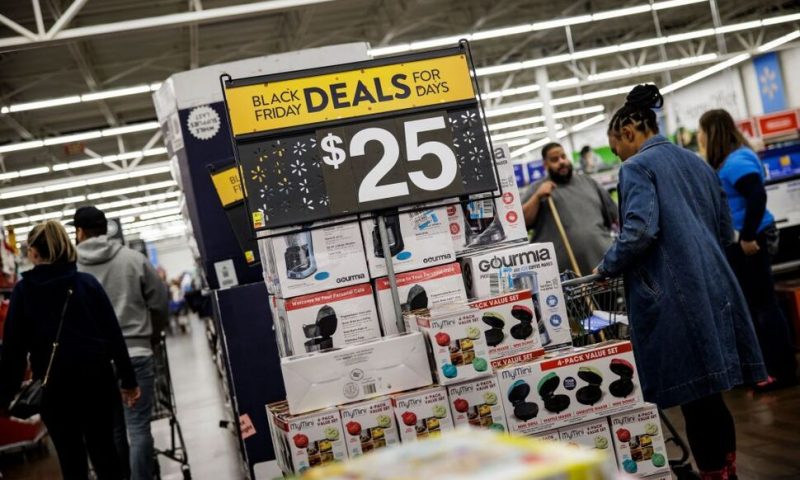The drop came as October sales were revised upward.
Retail sales slipped 0.6% in November, as consumers shied away from big-ticket items like furniture and electronics, the Census Bureau reported on Thursday.
That compares to an increase of 1.3% in October and forecasts for a modest dip of 0.3%.
Categories that saw decreases were motor vehicles, furniture and electronics. Consumers have continued to spend even as the economy slows and the Federal Reserve raises interest rates, as it did on Wednesday with a half-point increase and vows to not stop in 2023. They have also been helped by moderating inflation, which fell in November to an annual rate of 7.1% from the prior month’s 7.7% and down from its June peak of 9.1%.
But their pattern of spending has changed, with consumers choosing “experiences” such as travel and eating out over long-lasting items such as sporting goods, furniture and garden equipment that were favored a year ago.
Sales of gasoline saw a very slight decrease, but since the report does not adjust for inflation, that may reflect the decline in the cost of gasoline over the past month.
Much of retail spending is being fueled by heavier use of credit cards and drawdowns of personal savings that ballooned during the coronavirus pandemic. Rising wages have also helped buoy spending.
“It’s a mixed bag,” says Jonathan Silver, CEO of Affinity, a firm that tracks debit and credit card spending for companies. “Consumer appetite to spend is still strong, but we’re seeing a lot of bargain hunting. Promotions are a huge part of the strategy for retailers.”
Overall, Silver says Affinity’s data show a 6% increase in retail spending for November compared to 2021, but some categories – such as electronics, clothing and accessories – have turned negative.
The Fed threw cold water Wednesday on the idea of a pause, or pivot, in its aggressive stance of monetary policy tightening, a driver in higher consumer borrowing costs. The central bank ruled out the likelihood that rate increases would stop in 2023, amid the threat of a recession and rising unemployment next year.
“The Fed is trying to engineer a soft economic landing that in our view has a high likelihood of failing and causing a recession in 2023,” James Demmert, chief investment officer of Main Street Research, wrote Thursday morning. “The Fed would like inflation to settle at 2% and it’s hard to imagine that happening without a recession and much higher unemployment, as the current rate of inflation is still way above that 2% target.”
Separately Thursday, the Labor Department reported the number of Americans filing first-time claims for unemployment benefits fell by 20,000 to 211,000 from the revised 231,000 of the prior week.
The four-week moving average, meanwhile, was 227,250, a decline of 3,000 from the prior period.

